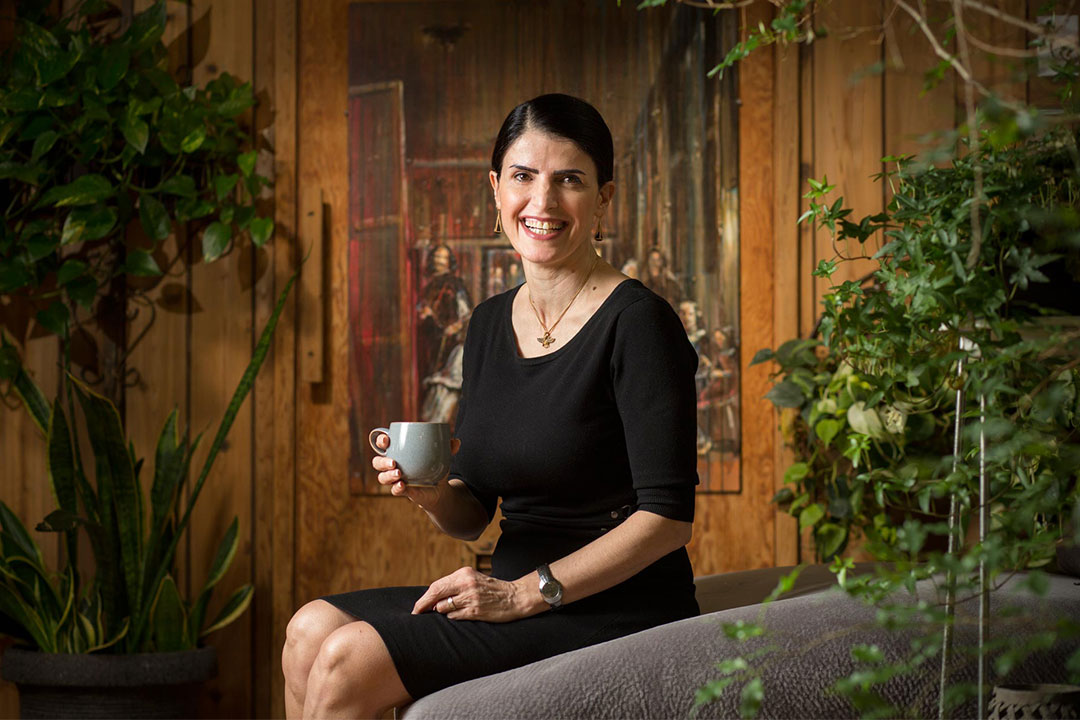
Fearless advocate
Once a refugee herself, Haidah Amirzadeh (BFA’99, JD’04) now lends her expertise as an immigration lawyer to help others.
By Kathy FitzpatrickWhen Haidah Amirzadeh first stepped onto the tarmac at Saskatoon’s airport, she thought every car and truck in the city had engine problems.
It was November, and clouds of exhaust poured from every tailpipe. She had never seen that in her home country of Iran.
That was Amirzadeh’s first taste of winter when she arrived in Saskatoon as a refugee, back in 1989.
Now a lawyer specializing in immigration and refugee cases, Amirzadeh doesn’t just try to put herself in her clients’ shoes. She has been there.
“It was tough,” she says of her experience.
Amirzadeh was just 13 years old when the Islamic Revolution swept through Iran. She remembers her family, once accustomed to open discussion across a spectrum of views, being blacklisted.
She remembers also the war with Iraq that soon followed the revolution, and the frequent bombing near her home in Shiraz—a city known for its wine, poetry and flowers.
And she recalls the closure of all the universities in the revolution’s early days, and the high unemployment rate.
By 1987, Amirzadeh was a 22-year-old woman fleeing the country with her then-husband. They told no one they were leaving, not even their families. Upon their arrival in Turkey, they claimed refugee status and for the next 18 months lived under constant fear of deportation.
The couple spent their first month in a city near the border, where they were fingerprinted and required to report to police daily. After clearing security, they were taken to a small town near Ankara, where they reported to police monthly. They were not allowed to leave the town without permission. Amirzadeh estimates there were a total of 50 to 60 refugees in that community, waiting to be selected to go to different countries.
She and her husband both worked, he at a seafood company, she in what she calls a “sweat shop” doing basic sewing. They had no work permits, although Amirzadeh notes that under international law they officially should have been allowed to work.
“It was pretty lonely, too,” she says.
This was the era before cell phones, and the couple would go to the post office to wait hours for phone calls from family.
Initially, Amirzadeh and her husband were interviewed by the United Nations Refugee Agency, which accepted their claim as refugees. It then circulated their application to countries that are signatories to the 1951 Convention Relating to the Status of Refugees. They were called for an interview at the Canadian embassy, passed and were accepted for resettlement in Canada.
“So we really didn’t choose Canada, Canada chose us,” she says.

